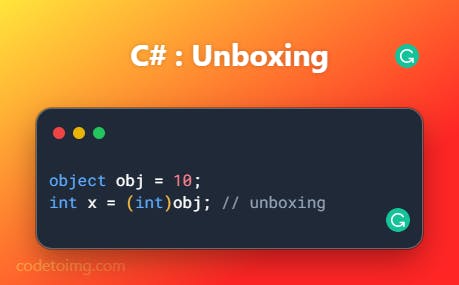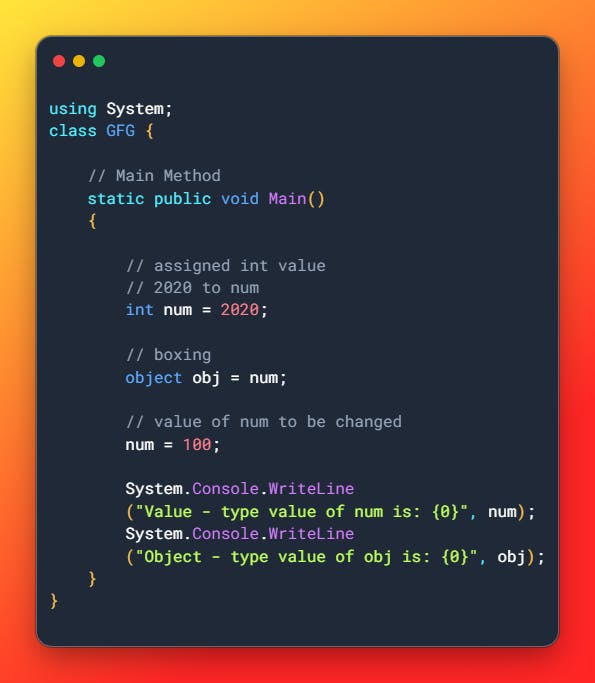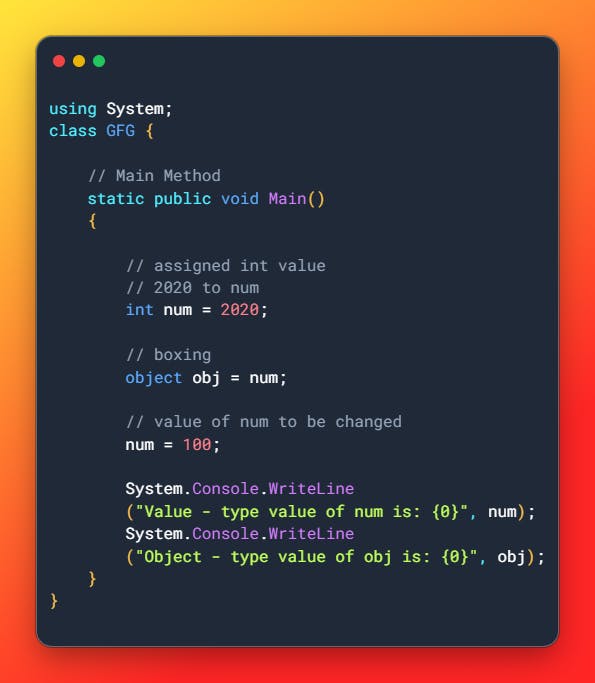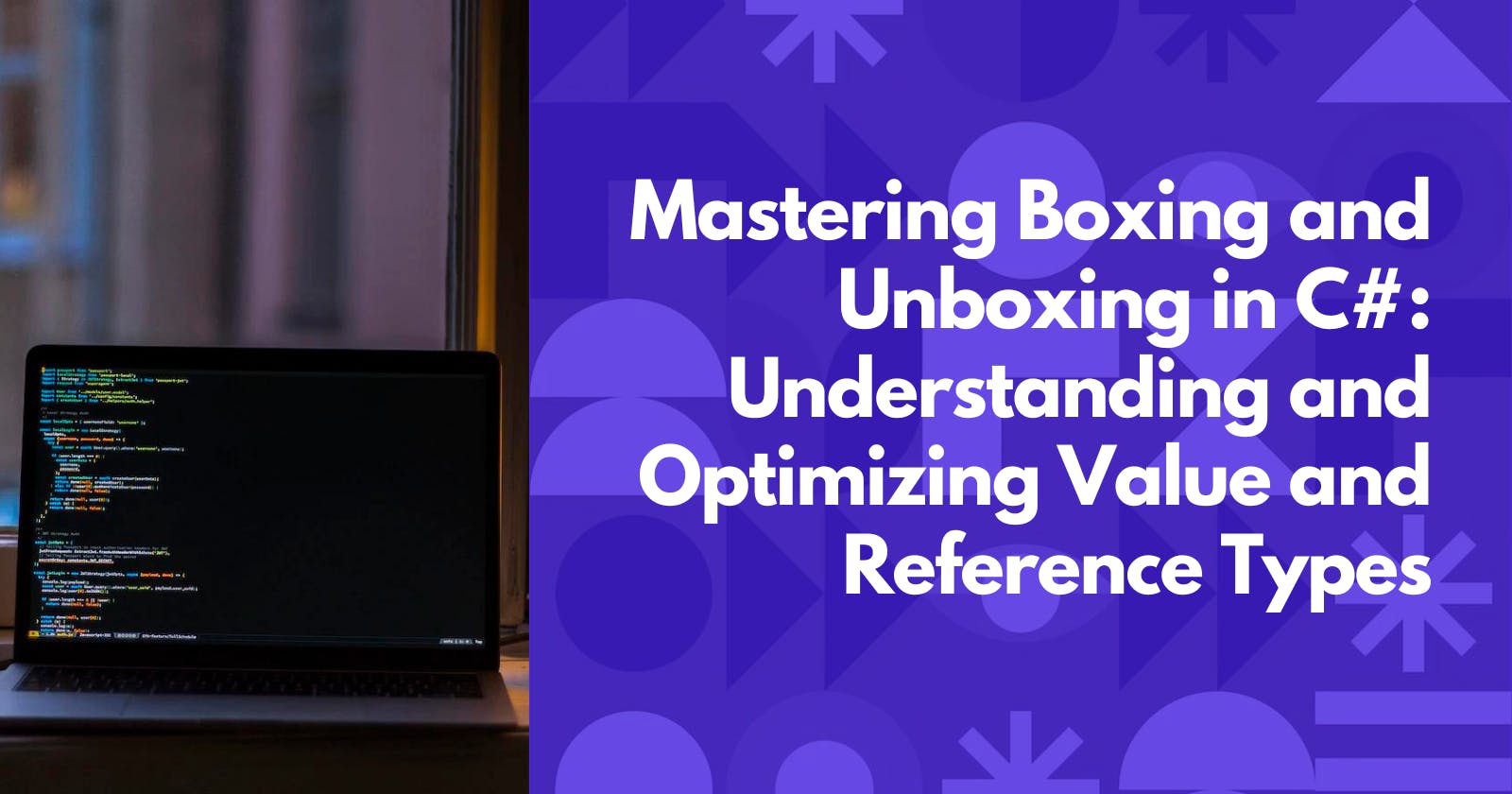Mastering Boxing and Unboxing in C#: Understanding and Optimizing Value and Reference Types
Boxing and unboxing are two important concepts in the C# programming language that allow you to convert between value types and reference types.
Value types are data types that store a value directly, such as int, float, and bool. They are stored on the stack and are typically faster to access than reference types, which are stored on the heap. However, value types do not support certain features that reference types do, such as the ability to be null or to be passed as a reference to a method.
Reference types, on the other hand, are data types that store a reference to an object in memory. They include types such as strings, arrays, and classes. They are stored on the heap and support features such as being null and being passed as a reference to a method.
Boxing is the process of converting a value type to a reference type. This is done by creating a new object on the heap and storing the value of the value type inside it. The reference to the object is then returned.
Here's an example of boxing in C#:

In this example, the value of the integer variable x is boxed and stored in a new object obj. The object obj now holds a reference to the boxed value of x.
Unboxing is the process of converting a reference type back to a value type. This is done by extracting the value from the object and storing it in a value-type variable.
Here's an example of unboxing in C#:

In this example, the object obj is unboxed and the value is stored in the integer variable x.
It's important to note that boxing and unboxing can have a performance impact on your code, as they require the creation and destruction of objects on the heap. Therefore, it's generally recommended to avoid unnecessary boxing and unboxing if possible.
One way to avoid boxing and unboxing is to use generics, which allow you to create type-safe collections and methods that can work with a variety of data types without the need for boxing and unboxing.
In summary, boxing and unboxing are useful features in C# that allow you to convert between value types and reference types, but they can have a performance impact and should be used with caution. By understanding how they work and when they are necessary, you can write more efficient and effective C# code. To see extensible examples of boxing and unboxing, see the snippets below.
Boxing

Unboxing

Thanks and see you next time.

